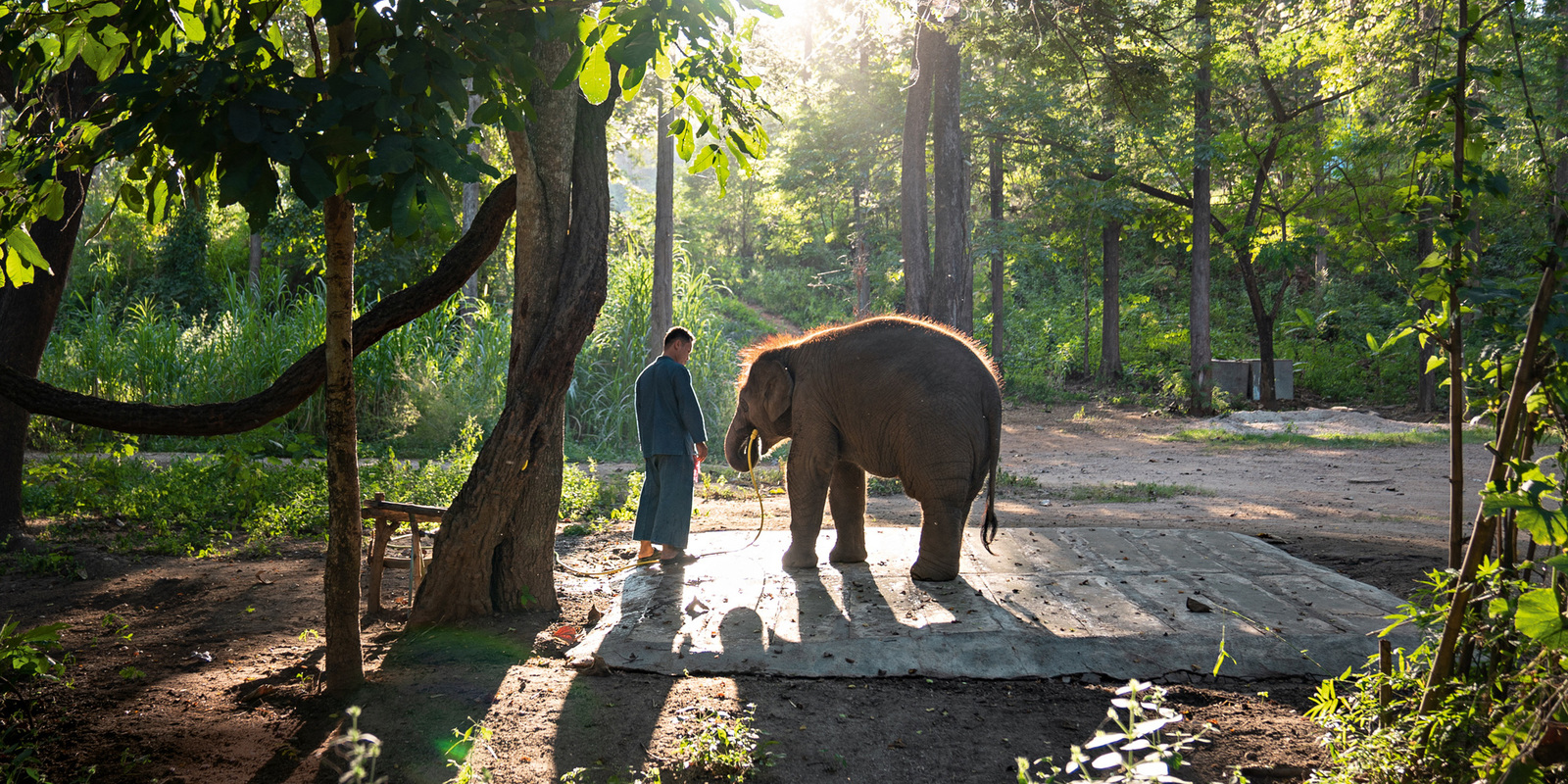Visit to the village of hope
After a long and difficult past, the small Colombian village of Bocas del Carare now finds itself on its own unique path to the future – green, modern and in harmony with nature.

The green filter facility has changed everything
Alfredo Palacios starts his job at six o’clock every morning. He was previously a fisherman. Now the 47-year-old is responsible for the maintenance of the green filter facility in his home village of Bocas del Carare. “My work makes me feel good. And when you do a job that you like, then you always do it with love.”
For Alfredo, the filter facility symbolises the transformation that Bocas del Carare has undergone. “This village has changed considerably,” sums up the father of five children. Civil wars have been rife in Colombia for many decades. Particularly in the 1980s and 1990s, there were numerous violent conflicts nationwide. At the time, paramilitary groups terrorised the area and used violence to force the inhabitants from the village. “But now, thank God, things are very quiet,” says Alfredo, who at the time also had to drop everything and flee from the village, but returned again later.
The green filter facility cleans the village waste water before it is directed into Colombia’s longest river, the 1,528-kilometre-long Magdalena River. The isolated fishing village is in the north-east of the country in the Santander district and is only one of five places in the country to have such a facility. Before the system was installed, the dirty water from houses, shops, the local restaurant and the two hotels flowed into the river unfiltered. As a result, the water was very contaminated and many fishermen in the village were left without a livelihood because the fish were inedible.

Clean water thanks to the power of plants
More quality of life for humans and animals

Helping people help themselves
In 2016, the non-governmental organisation Fundación Humedales in Bogotá joined forces with the Global Nature Fund to tackle the problem. With financial support from Kärcher, the German Federal Ministry for Economic Cooperation and Development (BMZ) and the Swiss company Sika, they installed a remarkably simple system to help Bocas del Carare.
Instead of using chemicals, the solarpowered, 1,600-square-metre facility uses plants to treat the waste water – with a very simple operating principle: the community channels its waste water to the pretreatment area of the green filter facility. Firstly, coarse components are filtered out and the flow rate is reduced. Oils and fats are also separated out in the first stage. The water then ends up in open channels filled with water hyacinths. In the shallow and narrow channels, the water flows around the plants’ root systems and is cleaned by the interaction of microorganisms and roots. Water samples can be taken from an inspection tank to test the quality. The water flows back into the Magdalena River.

New habitat for flora and fauna
When the water goes back into the natural cycle, it is 95 % clean. “The local animal world also benefits from the filter system,” explains Alfredo. “There are now many different birds and insects at the green filter facility who were not there previously.” In the late summer of 2019, a small cayman even made himself at home in the shallow water of the green filter facility.
The local residents hope that more animal species will follow and develop their own ecosystem around the green filter, which also offers highly endangered species a new home. “Zoologists regularly come to the village now. Even students from France and Spain were here to research the local fauna and flora.” Alfredo wants even more visitors. “The green filter facility has improved our quality of life significantly. We can now look to the future full of hope.”
You may also be interested in:

Green filter systems for the world
Felipe Valderrama is a very busy man. The Colombian works for the non-governmental organisation Fundación Humedales, which, among other things, is committed to providing clean water in remote areas of Colombia. And he is the one who makes it possible.

Our social commitment
At Kärcher, we are conscious of our social responsibility and want to make a contribution to things both big and small. Every year we fund organisations which campaign for the preservation of nature, culture and society and carry out free cleaning projects for the preservation of historical monuments and buildings.

The elephant whisperer
Somchat Changkarn and his charges can communicate without words – this mahout can tell how the animals are feeling by their body language. He spends up to 12 hours per day with the pachyderms at the Thai Elephant Conservation Center.








